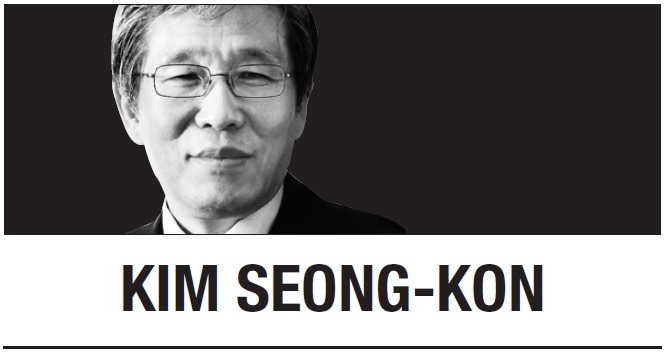
South Korea is undoubtedly one of the most convenient places to live in today’s world. You can do practically anything electronically, including lock your door, so no one carries jingling metal keys in Korea. Moreover, you can obtain government documents online and even renew your driver’s license in a few minutes.
At the same time, however, many bureaucracies make life incredibly inconvenient. According to recent newspaper reports, foreigners cannot buy Korean merchandise online because it requires a special enrollment process. To enroll, you need to register a Korean mobile phone number beginning with 010, which is embarrassingly absurd. What a shame that in Korea, absurdity and irrationality are still ubiquitous despite what is otherwise an extremely convenient living environment.
Recently, the Korean government finally abolished the public online identification system that had inconvenienced both Koreans and foreign residents for a long time. So, now you can freely access your bank accounts, obtain public documents or purchase merchandise online, right?
Not quite. Instead of the now defunct public online identification system, you are required to use the new “communal identification system” or “financial identification system.” To do that, you still have to provide your Korean mobile phone number in order to receive the verification text messages or push signals. What about those who do not have a Korean mobile phone or do not use one because they are staying overseas? Neither the government nor the bank seems to care. Thus, bureaucracy continues to bother people and the government has once again lost a valuable opportunity to change a faulty system.
In Korea, if you want to transfer money online, you need to enter a series of numbers generated by a one-time password card. The problem is that if you are overseas and your OTP card battery is dead, there is no way for you to transfer money at all. When you try to install your bank’s mobile app from overseas, it requires a photo of the citizen registration card that you presented when you first opened your account. What happens if you have a newly issued card? You simply cannot upload the bank’s mobile app. The message says, “This is different from the one you originally registered.”
In the case of American banks, there is no such needless bureaucratic red tape. If you want to access your account, transfer money or upload the bank’s mobile app, all you need to do is answer a security question or two that you set up when you opened your bank account, such as your mother’s maiden name or the name of your first pet. Since others would not know such private things, OTP cards are completely unnecessary in the United States.
There are many other absurd and irrational things in Korean society. Splitting the capital into two cities is one. The “administrative capital,” Sejong, has become home to many government facilities, which are now located too far from Seoul to be efficient. This has caused all sorts of inconveniences, such as splitting the families of public servants or forcing them to waste astronomical amounts of money to commute back and forth. The dispersal of public institutions to different provinces has brought forth similar negative outcomes.
Another absurd and irrational thing is that the Korean government often imposes new laws that become effective retroactively. For example, when the government revised the pension law a few years ago, it made the changes apply retroactively so they affected retired civil servants and soldiers.
Yet if the government reduces the pension funds that retirees are entitled to, it will be guilty of nonfulfillment of its contracts. Who would trust a government that was less reliable than a commercial bank?
Recently several lawmakers announced that, for the sake of equality, they would reform the government and military pension systems again and converge them with the National Pension Service for ordinary people. However, it is sheer nonsense and ignorance to compare these special pensions with the National Pension Service for ordinary people. The two are radically different in nature. Besides, unlike ordinary people, public servants and soldiers have dedicated their lives to their country.
Contrary to popular belief, retired government officials’ pensions have nothing to do with tax money in principle. If the government’s investments failed and it needed support from taxes, it would be the government’s problem, not the beneficiaries’. Few people know that civil servants and professional soldiers pay a considerable amount of money into their pensions every month for 30 or 40 years.
We should put an end to irrationality and absurdity, which constitute a chronic disease in our society. Instead, we should be reasonable and rational. We should build our society upon practical good sense and basic principles of reason.
Kim Seong-kon
Kim Seong-kon is a professor emeritus of English at Seoul National University and a visiting scholar at Dartmouth College. -- Ed.








